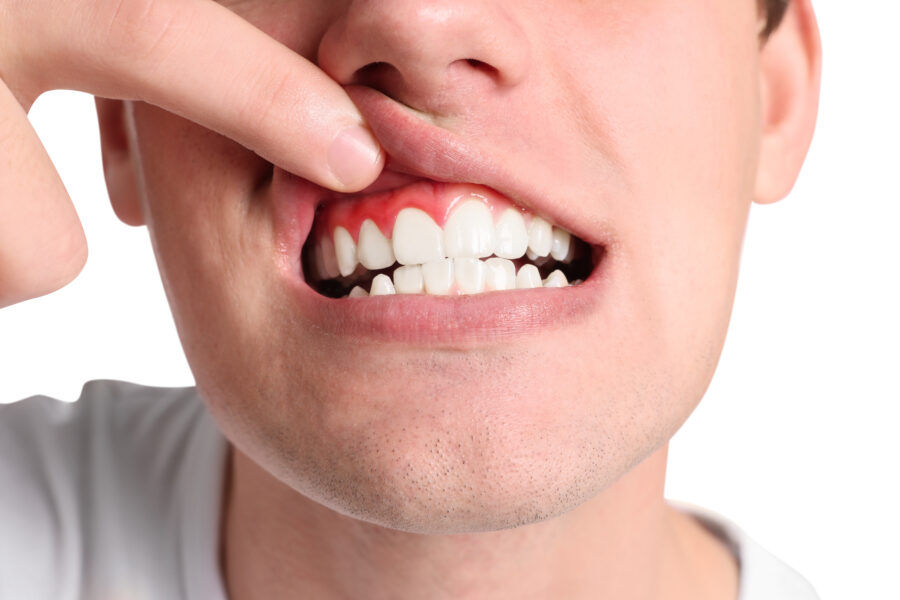
Gum Recession: Causes, Treatments, and Prevention
Gum recession, a common issue that affects most people as they age, is a serious condition that requires attention. Unfortunately, there is no way to reverse the process. However, at Jacksonville Periodontics, we offer effective treatments for receding gums. It’s crucial to understand what causes it, how to treat it, and most importantly, how to prevent its onset.
Keep reading to gain this vital knowledge about recession, oral care, and dental health.
What is Gum Recession?
Gum recession is a periodontal disease in which the gums start pulling back from the teeth, exposing more roots. This can make the teeth more sensitive when you brush them or have hot or cold drinks. It also puts the teeth at risk of developing cavities. This can affect a single tooth in your mouth or several.
Who is Most Susceptible?
The older you get, the more likely you are to develop gum recession. A 2015 study published in the National Library of Medicine found that gum recession rates are highest among people over 65. Some risk factors can cause gum recession to happen when people are younger, and some of those may surprise you:
- Wearing braces or other orthodontic treatments
- Having a tongue or lip piercing
- Aggressively brushing the teeth
- Using chewing tobacco or cigarettes
- Having another form of gum disease
Some people can also have a genetic predisposition for thin gum tissue, which leads to recession sooner as they age.
Oral Health Causes
Several factors contribute to development of gum recession:
- Poor Oral Hygiene: Inadequate brushing and flossing can lead to plaque buildup, which can cause gum disease and, eventually, gum recession.
- Aggressive Brushing: Brushing your teeth too hard or using a hard-bristled toothbrush can wear down the enamel and cause the gums to recede.
- Periodontal Diseases: These are bacterial gum infections that destroy gum tissue and the supporting bone that holds your teeth in place.
- Hormonal Changes: Fluctuations in hormone levels, especially in women, can make gums more sensitive and vulnerable to recession.
- Tobacco Use: Tobacco users are more likely to have sticky plaque on their teeth, which can cause gum recession.
- Genetics: As mentioned, some people may be more prone to gum disease due to their genetic makeup.
Treating Gum Recession
While gum recession cannot be reversed, there are several treatments available to manage the condition and prevent further damage:
- Scaling and Root Planing: This is a deep cleaning procedure where plaque and tartar are removed from the surface of the teeth and root areas below the gumline.
- Gum Grafting: This surgical procedure involves taking gum tissue from another part of your mouth and attaching it where the gums have receded. This can help reduce sensitivity and protect the roots of your teeth.
- Pinhole Surgical Technique: A minimally invasive procedure that involves making small holes in the gum tissue to loosen and reposition it over the exposed roots.
- Regenerative Procedures: If the bone supporting your teeth has been destroyed due to gum recession, a procedure to regenerate lost bone and tissue may be recommended.
Preventing Gum Recession
Prevention is always better than cure. Here are some steps you can take to prevent gum recession:
- Maintain Good Oral Hygiene: Brush your teeth twice a day with a soft-bristled toothbrush, and floss daily to remove plaque between teeth and along the gumline.
- Regular Dental Visits: Schedule regular check-ups and cleanings with your dentist to catch any signs of gum disease early.
- Use the Right Brushing Technique: Be gentle while brushing your gums and teeth. Use circular motions rather than back-and-forth strokes, and avoid brushing too hard.
- Healthy Diet: Eat a balanced diet rich in vitamins and minerals that promote healthy gums, such as vitamin C.
- Avoid Tobacco Products: Refrain from using tobacco in any form, as it increases the risk of gum disease and other oral health issues.
- Mouthguard for Teeth Grinding: If you grind your teeth at night, consider getting a custom-made mouthguard to protect your teeth and gums.
At Twin Rivers Periodontics, we are dedicated to helping you maintain healthy gums and teeth. If you suspect you have gum recession or want to learn more about prevention and gum treatment options, contact us today for a consultation. Together, we can develop a personalized plan to keep your smile healthy and beautiful for years to come.